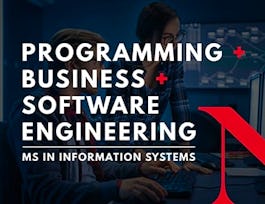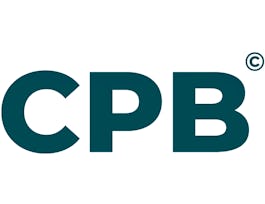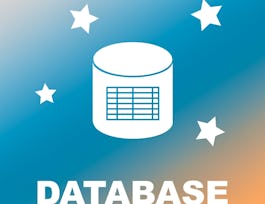- Explore
- Information Technology
- Support and Operations
Support and Operations
Earn Your Degree
Most Popular Courses
Kickstart Your Career in IT
Top Rated Courses
Launch Your Career
Most Popular Certificates
Recently Launched Guided Projects
Frequently Asked Questions about Support and Operations
Support and Operations is a broad term encompassing all the services provided by an organization’s information technology (IT) team. This includes the management of hardware devices, software applications, and network administration, as well as the provision of troubleshooting and help desk assistance for both internal and customer-facing IT operations.
Because Support and Operations covers such a broad swath of IT services, this field is constantly evolving in response to emerging technologies and applications. For example, IT operations experts today are increasingly focused on issues concerning cloud computing and the Internet of Things (IoT) - two technologies that essentially did not exist a decade ago! Regardless of the IT technologies in question, Support and Operations teams aim to promote service consistency, quality, and reliability.
Because IT Support and Operations covers such a broad range of responsibilities and business activities, the skills required for careers in this area can vary widely. If you’re working directly with internal or external clients to address IT issues, you need excellent technical skills as well as communications skills to effectively diagnose problems and help users implement solutions. Organizational skills are also required for accuracy in data entry, data processing, and filing incident management reports.
Support and Operations professionals working in management roles require additional skills to design and implement processes for ensuring reliable and secure IT services. They need critical thinking and decision making skills to create systems for effective IT service delivery, leadership ability to mentor and motivate support teams on the front lines of a sometimes-challenging job, and the resource management skills needed to allocate budgets across personnel and systems required to meet operational needs.
As more and more business operations become dependent on computers and IT systems, demand for expertise in Support and Operations is expected to continue growing rapidly. After all, these professionals are essential for maintaining the quality of IT services and business processes throughout an organization! According to the Bureau of Labor Statistics, computer support jobs are thus projected to grow by 10% between 2018 and 2028 - faster than the average of all other occupations.
Support and Operations jobs may either work directly with internal and external users or in management and organizational roles. User-facing jobs include IT support specialist, computer technician, service desk technician, and IT help desk support. Typical managerial roles in this field include service desk manager, IT operations manager, and, in the C-suite, the chief information officer (CIO).
Yes! Online courses are a great way to develop Support and Operations skills on a more flexible schedule and at a lower cost than on-campus degree or other in-person training programs. In addition to video lectures, written work, and quizzes to build technical support expertise, many online courses include the opportunity to develop "soft skills" like critical thinking and communications through video-enabled virtual office hours and collaboration with classmates.
Coursera offers Professional Certificates, MasterTrack Certificates, Specializations, Guided Projects and courses in support and operations from top universities like University of Virginia and University of Minnesota and leading companies like Google and Atlassian. This field can also be studied in the context of a broader computer science degree with bachelors and masters degree programs available from top-ranked schools like Arizona State University, the University of Illinois, and Imperial College London.
Excellent computer skills are a must before learning support and operations. Any work or educational experience in IT, particularly quality assurance, infrastructure management, or technical support are helpful too. Because many people in support and operations deal directly with consumers and vendors, a background in customer service, even if it is from an entry-level retail job, can be beneficial too before starting to learn about support and operations.
People who are good communicators are well-suited for roles in support and operations. You'll spend much of your time communicating with customers, vendors, other IT team members, and people from other departments in your company. If you're planning to go into IT operations management, you'll also have to clearly communicate the needs of the job to your employees. This means you'll also need good leadership and decision-making skills. You should be a good problem solver too. When something goes wrong, it may be your job to figure out why and get to the bottom of it. Because troubleshooting can be time-consuming, excellent time management skills are a must as well.
People who work in IT support and operations may begin with entry-level positions, such as IT technicians, desktop support specialists, and field service technicians. As you earn your degree, gain more experience, and earn specializations or take courses related to your field, you may work towards more advanced jobs, like field engineers and support operations managers. You may also work towards jobs in cybersecurity, web development, software development, and data analytics.
Any education related to computer science or information technology can relate back to the field of support and operations. You may consider specializations in areas like IT support, IT automation, technical support, operations systems, and programming languages like Python. People who work in operations and support may also want to study English or communications to improve their written and verbal communication skills.
Companies that require IT support are the most common places that hire people with a background in support and operations. However, while some companies may have a team in-house, others may outsource to a third-party firm, so working for a company that specializes in support may also be an option. You may also find yourself working in schools, universities, government agencies, hospitals, and anywhere that operates using a computer network.
Online Support and Operations courses offer a convenient and flexible way to enhance your existing knowledge or learn new Support and Operations skills. With a wide range of Support and Operations classes, you can conveniently learn at your own pace to advance your Support and Operations career.
When looking to enhance your workforce's skills in Support and Operations, it's crucial to select a course that aligns with their current abilities and learning objectives. Our Skills Dashboard is an invaluable tool for identifying skill gaps and choosing the most appropriate course for effective upskilling. For a comprehensive understanding of how our courses can benefit your employees, explore the enterprise solutions we offer. Discover more about our tailored programs at Coursera for Business here.
























































































































